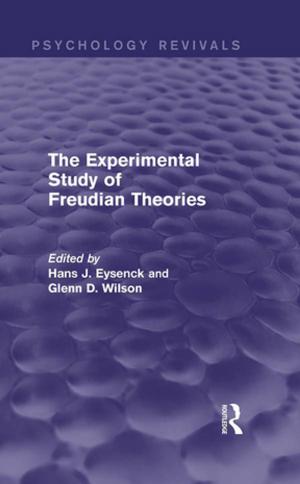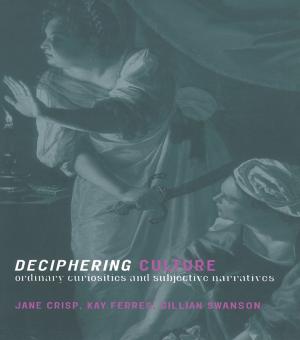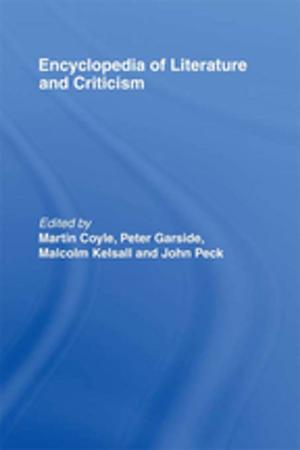| Author: | E. W. F. Tomlin | ISBN: | 9780429514258 |
| Publisher: | Taylor and Francis | Publication: | March 6, 2019 |
| Imprint: | Routledge | Language: | English |
| Author: | E. W. F. Tomlin |
| ISBN: | 9780429514258 |
| Publisher: | Taylor and Francis |
| Publication: | March 6, 2019 |
| Imprint: | Routledge |
| Language: | English |
Originally published in 1947. This book looks at contemporary conundrums in philosophical tendencies, bringing the reader a first-principles review of the purpose of such enquiries in relation to modern life. It presents the importance of the history of the development of philosophical thought, beginning in Part 1 with perception. Significant definitions and theories are identified and later refinements discussed – in particular conceptualism and its development from the Greeks through Berkeley to modern realism and its limitations and critiques. Part 2 brings problems identified by past thinkersto the fore, from Plato’s forms to Christian theology, in an examination of the apparent dichotomy between metaphysics and scientific methods. Part 3 examines the Rationalist and the Empiricist attacks on Scepticism and Kant’s reconciliation of the differences of both. This provides the context and structure for discussion of the works of Hegel, and ultimate refutation thereof as a confusion between metaphysics and theology. Part 4 identifies the developments in thinking of Positivism, both Modern and Logical, and the New Synthesis of Alexander and Whitehead as the most recent approach.
Originally published in 1947. This book looks at contemporary conundrums in philosophical tendencies, bringing the reader a first-principles review of the purpose of such enquiries in relation to modern life. It presents the importance of the history of the development of philosophical thought, beginning in Part 1 with perception. Significant definitions and theories are identified and later refinements discussed – in particular conceptualism and its development from the Greeks through Berkeley to modern realism and its limitations and critiques. Part 2 brings problems identified by past thinkersto the fore, from Plato’s forms to Christian theology, in an examination of the apparent dichotomy between metaphysics and scientific methods. Part 3 examines the Rationalist and the Empiricist attacks on Scepticism and Kant’s reconciliation of the differences of both. This provides the context and structure for discussion of the works of Hegel, and ultimate refutation thereof as a confusion between metaphysics and theology. Part 4 identifies the developments in thinking of Positivism, both Modern and Logical, and the New Synthesis of Alexander and Whitehead as the most recent approach.















